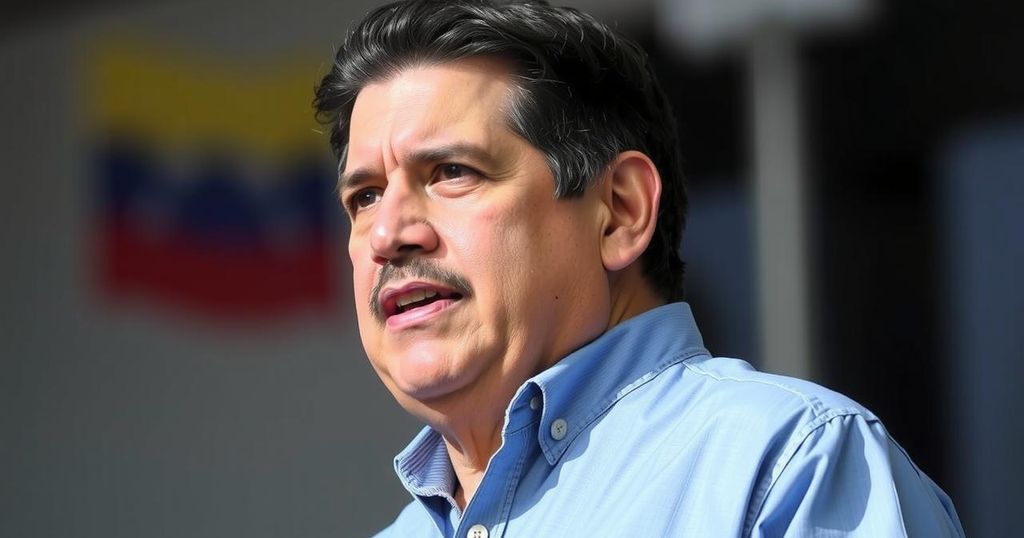Maduro’s Third-Term Power Grab: Implications for Venezuela’s Future

Nicolás Maduro was inaugurated for a third presidential term despite allegations of electoral fraud favoring opposition candidate Edmundo González. The international community has condemned his actions, with experts suggesting coordinated regional support is crucial for Venezuelan democracy. Analysts emphasized the importance of applying targeted sanctions and uniting opposition factions to mitigate the authoritarian control exercised by Maduro and his allies.
On January 5, 2025, Nicolás Maduro was inaugurated for a third presidential term following an election marred by allegations of fraud. Despite opposition candidate Edmundo González garnering more votes, Maduro assumed office, prompting widespread condemnation from regional leaders across the political spectrum. The inauguration saw further repression of dissent, including the detention of María Corina Machado, a leading opposition figure. Analysts suggest that Maduro’s actions illustrate the resilience of his authoritarian regime, even amidst increasing political pressures and sanctions from the United States. The bipartisan recognition of González by both President Biden and President Trump underscores a rare political unity in the region against Maduro’s governance. As the Maduro regime faces international condemnation, there are rising calls for a coordinated strategy to support Venezuela’s transitioning back to democracy.
Several experts from the Atlantic Council provided insights into Maduro’s consolidation of power and its implications for Venezuela’s future. Jason Marczak emphasized the importance of consolidating support within the region to ensure that Venezuelans pressing for democratic reforms do not succumb to inaction. Geoff Ramsey noted the potential internal tensions within Maduro’s coalition and the need for the Biden administration to use this momentum, suggesting that employing a targeted sanctions approach can be more effective than a broad maximum pressure strategy. Meanwhile, Iria Puyosa argued that the Biden administration’s recent sanctions could prove insufficient without a clear strategy for aiding Venezuela’s democratic processes. Lucie Kneip remarked on the necessity for a cohesive opposition strategy, while William Tobin highlighted the crucial balance of sanctions against individuals versus broader economic measures against the oil sector.
Thus, experts agree that while Maduro has temporarily solidified his hold on power, the growing internal dissent and international pressure present a crucial opportunity for promoting change in Venezuela. Taking decisive action and fostering unity within the opposition could pave the way toward a transition of power to a democratically elected government.
The political landscape in Venezuela has been tumultuous since Nicolás Maduro ascended to power in 2013 amidst accusations of electoral manipulation. His recent re-election amid widespread allegations of fraud has drawn sharp criticism both domestically and internationally. Notably, the latest election results indicated that the opposition candidate, Edmundo González, was favored by voters, yet Maduro’s regime has leveraged its control to assume power despite this opposition. This situation is exacerbated by ongoing economic challenges and human rights violations within the country, leading to extensive calls for international intervention and support for opposition forces.
In conclusion, Nicolás Maduro’s third-term inauguration highlights the persistent challenge of authoritarianism in Venezuela, alongside rising discontent among the populace and significant political divisions within the ruling elite. Experts propose that a well-coordinated international response, paired with strategic sanctions and comprehensive support for the Venezuelan opposition, may lay the groundwork for facilitating a more democratic future for the nation. The unity among Latin American leaders against Maduro’s regime may serve as a catalyst for change if effectively harnessed.
Original Source: www.atlanticcouncil.org







